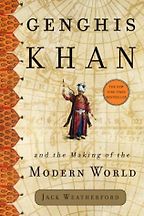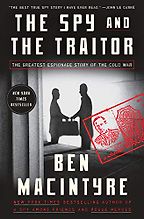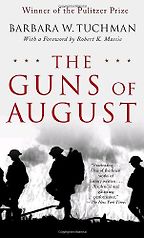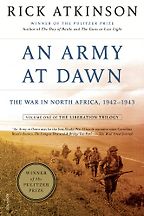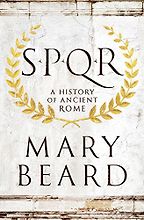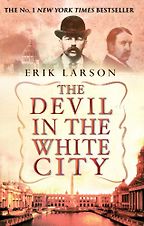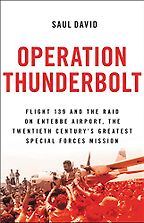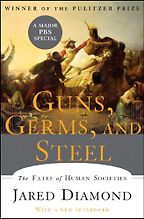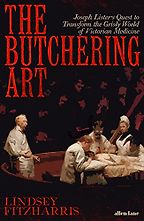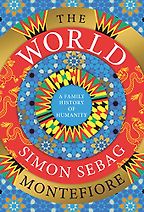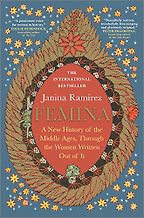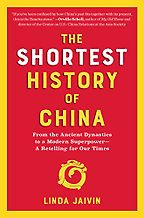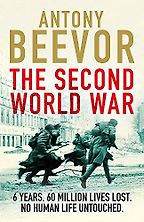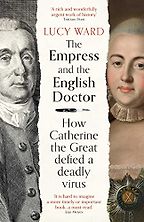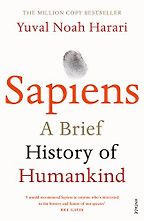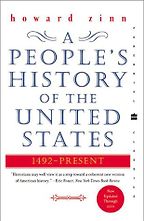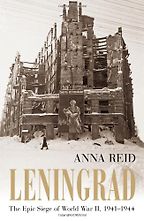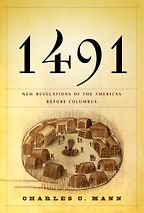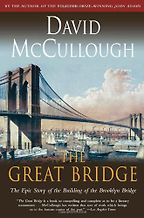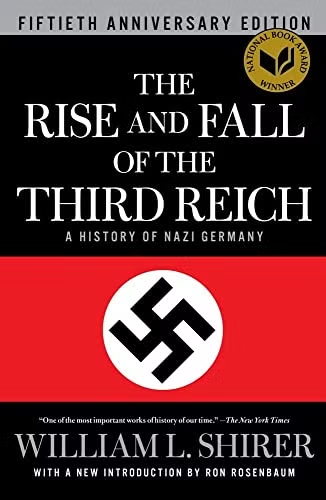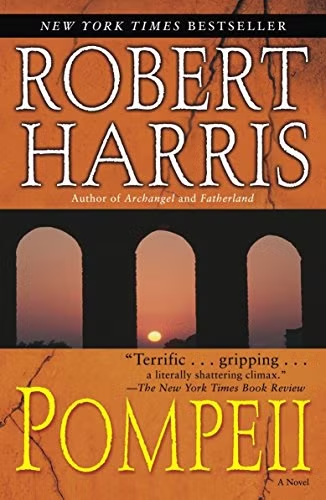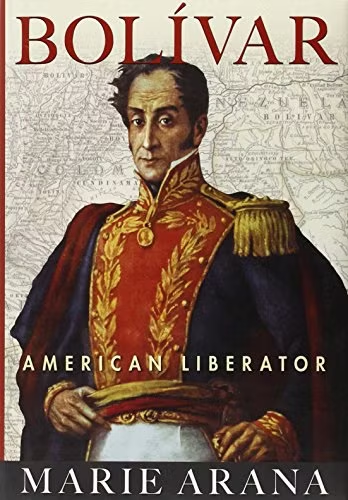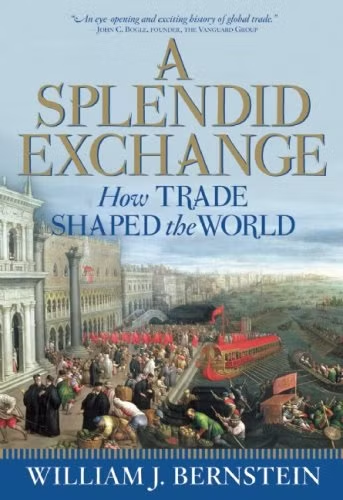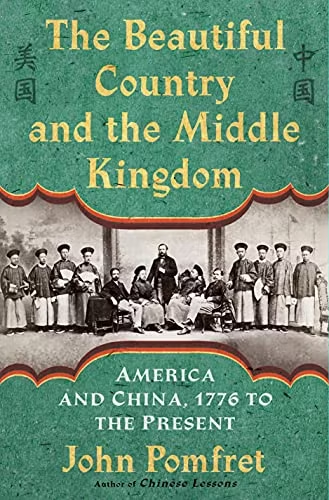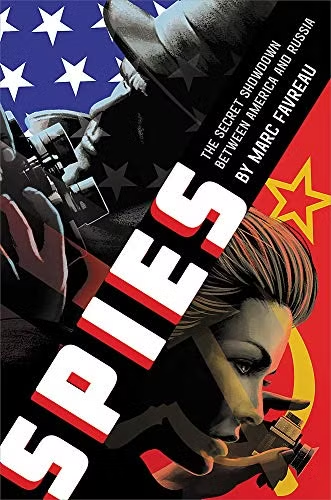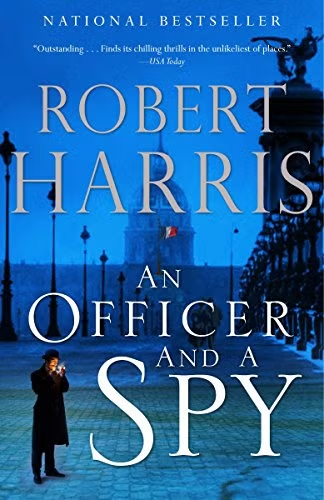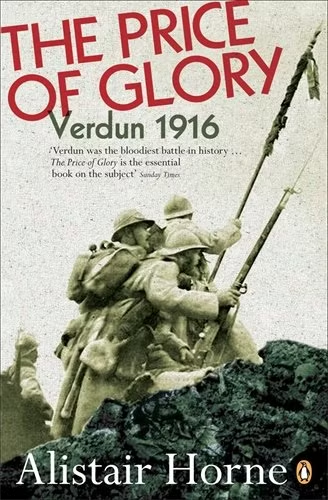Popular History
Last updated: September 25, 2025
Popular history books are a good way for readers to get excited or interested in a historical period, person, topic or country. While academic works of history have to be very careful about what they say—and provide copious footnotes to back up any assertion—popular history books can take a few more liberties with their interpretations so that they can tell a compelling story and bring the reader along with them. In fact, it's the way many historians got interested in history, a stepping stone to more detailed history books. Or you can just enjoy popular history for what it is, an enjoyable way to learn about a piece of history before moving on to another person, place or time.
Genghis Khan and the Making of the Modern World
by Jack Weatherford
A popular history of Genghis Khan—or as we should call him: Chinggis Khan—founder of the Mongol empire: the biggest land empire the world has ever known.
“When this book came out in 2004 it created a lot of buzz. This was his first foray into dealing with Mongols and, like many of us, Jack Weatherford was bitten by the Mongol bug, and his enthusiasm is infectious. There are many factual errors in this book, but he’s an incredible writer and, as an anthropologist, he brings a perspective that many books on Chinggis Khan don’t have.” Read more...
The best books on Chinggis Khan
Timothy May, Historian
“He’s centering it on the entire landmass and its intense interaction over the millennia. We tend to break things down into little units and to break them down into yet smaller political and cultural entities. We undervalue the interaction among these cultural centers, and that is precisely what Frankopan focuses on with great success.” Read more...
The Spy and the Traitor
by Ben Macintyre
☆ Shortlisted for the 2018 Baillie Gifford Prize for Nonfiction
The Spy and the Traitor by British journalist Ben MacIntyre is a true story which reads like a thriller. It’s the story of Oleg Gordievsky, a Soviet KGB officer who became a double agent and worked for Britain’s CIA equivalent, MI6. He’s also the only double agent Britain ever managed to get out of the Soviet Union alive. John le Carré called The Spy and the Traitor the “best true spy story” he had ever read, and it was shortlisted for the prestigious Baillie Gifford Prize as one of the best nonfiction books of 2018. If that’s not enough of a reason to start listening, Five Books CEO Juliet Frost says it’s the best audiobook she’s listened to all year.
Narrator: Ben MacIntryre
Length: 14 hours and 32 minutes
“It’s the story of Oleg Gordievsky, who was probably the most important British spy in Soviet Russia since the Second World War…it’s an incredible read. It’s like a truly rip-roaring piece of the absolutely best spy fiction.” Read more...
The Best Nonfiction Books of 2018
Fiammetta Rocco, Artists & Art Critic
“We really live in a golden age of narrative history. Because of the popularizing of history, we began to get back to history as storytelling. Many people give Barbara Tuchman credit for being the person that did that. She was not a professional historian. She was incredibly well-educated and well-read and researched everything you could possibly research, but she wrote it as a story. The historian Margaret Macmillan said that reading Tuchman, when she was a graduate student, was like history going from black-and-white to Technicolor. That’s what narrative history does for you.” Read more...
Best Books for History Reading Groups
Donna McBride, Historian
“Bregman’s point is that if we are going to be realistic, then there’s a lot to be optimistic about with regard to humankind. He has a lightness to his writing style, it’s slightly whimsical but never disregards the importance of and gravity of the material.” Read more...
The best books on Being Kinder to Yourself and Others
Ross White, Psychologist
An Army at Dawn: The War in North Africa, 1942-1943
by Rick Atkinson
🏆 Winner of the 2003 Pulitzer Prize for History
An Army at Dawn is volume 1 of The Liberation Trilogy, American historian Rick Atkinson's three books covering the Allies' defeat of Nazi Germany in World War II.
“I would actually recommend the whole Liberation Trilogy, because they’re all excellent and he means for you to read them together…His point is that you cannot understand the success in Europe unless you watch the countries building their military from North Africa on—particularly the United States, which was totally unprepared to go into World War Two…What makes Atkinson so good is he tells two stories at the same time, and shows how they influence one another. There is the story of these men. And you get letters and so forth, he singles out maybe three as the key ones that you keep going back to. And that’s partly so when, inevitably, one of them dies, you’re just sad. But then he also talks about the commanders and that’s the second theme in the book.” Read more...
Best Books for History Reading Groups
Donna McBride, Historian
SPQR: A History of Ancient Rome
by Mary Beard
SPQR traces the growth of an obscure Italian tribe from its beginnings to 212, when the Roman Empire stretched all around the Mediterranean and large chunks of Northern Europe too. This book is very readable but requires some background: it’s not an easy read if you know nothing about Ancient Rome or, to be more specific, what historians know about it.
“We all love Mary Beard—she’s a bit of a goddess for the Classics department here. She’s done such a great job, I don’t want to say ‘in popularising classics’ because that implies it wasn’t already popular, but she’s certainly kept things relevant. She’s very good both on TV and in fiction and nonfiction at making classics pertinent to the modern day. I’ve seen her on the BBC current affairs programme Question Time a number of times, and she always brings in classical parallels. I think SPQR is a wonderful book. Ancient Roman history is so very dense and intricate that it can be difficult to teach and learn about. Mary Beard makes it accessible—and she goes through it all, from the early days right up until the present day.” Read more...
“It is an astonishing story about one of the earliest known and most infamous serial killers in the United States—a guy calling himself Doctor Holmes. It takes place during the 1890s and there are these two parallel stories woven together. One is the construction of the Chicago Fair of 1893—this great World Fair, and all the marvel and wonder and engineering and ingenuity and innocence involving the construction. But there is also this really brutal psychopathic serial killer plotting and using the Fair to lure young women to this house of horror, this chamber that he has built in the basement of a Bates’ Motel type place. It is a classic story of good and evil playing out side by side.” Read more...
David Grann, Journalist
“This book tells the amazing story of the hostage rescue mission at Entebbe Airport in 1976. It is a stunning piece of research based on newly-released classified documents and interviews with the participants. And it is so compelling that, having been reading it in a bath that had gone cold, I got out and sat with my hair dripping because I couldn’t bring myself to put it down.” Read more...
The Best History Books to Take on Holiday
Suzannah Lipscomb, Historian
“The book is a masterpiece in terms of integrating a vast range of material from different disciplines, material on language, archaeology, comparative bio-geography, with also lots of his own ethnographic field studies peppered in there…whether you think it is right or wrong, it’s spurred an incredible amount of research. People took it seriously and fully engaged with it. It’s driven economists to get better data to test the theory. So, for example, there’s a number of economic studies now supporting Diamond’s basic thesis. Researchers went and got the date for the earliest beginning of agriculture in different parts of the world, and then used that to predict modern economic development—GDP per capita in the year 2000. You control for a lot of factors statistically, and it is still seems to be the case that what Jared Diamond presented very qualitatively—that the earliness of agriculture really matters—does hold when you do statistical analyses.” Read more...
“This book is not for the squeamish. It’s rather visceral. It’s about Victorian surgery and it’s fascinating. I’m very intrigued and interested in learning about the history of surgery, and especially about Joseph Lister, the father of antiseptic. He was a real pioneer, working on the margins between science and medicine, and doing wonderful things to move us on. These early surgeons were operating on the dividing line between life and death—and mostly death, it would appear. This young scholar has a very lively style. She has used a lot of primary material, and made the work accessible, perhaps too accessible at times, for the general reader.” Read more...
The Best History Books: the 2018 Wolfson Prize shortlist
Carole Hillenbrand, Theologians & Historians of Religion
The World: A Family History of Humanity
by Simon Sebag Montefiore
The World: A Family History by Simon Sebag Montefiore is a doorstopper of a book but a fabulous way to read about world history on a truly global scale across thousands of millennia. What holds it together is a focus on families, starting with the first footprints of a family ever found right the way through to the Trump family. As Sebag Montefiore explains at the beginning, this a work of synthesis, based on his reading and travels over the decades, written up during the Covid lockdowns. It's a really remarkable work of popular history, and a lot of fun to read.
Femina: A New History of the Middle Ages, Through the Women Written Out of It
by Janina Ramirez
Femina is a really interesting book about medieval women and history by Oxford-based historian Janina Ramirez. The title is revealing in itself: ‘FEMINA’ was what Ramirez found scribbled in library catalogues alongside texts known to be written by a woman. It's likely they were considered less important and hence not preserved. In the book, Ramirez introduces various medieval women and what we know about them, authors of famous texts like Julian of Norwich or the Loftus Princess, who lived in the 7th century when Christianity was just coming to England and we know only from her bones and her pendant. As Ramirez writes at the opening of the book, "Far from being 'unrecoverable,' developments in archaeology, advancements in technology and an openness to new angles have made medieval women ripe for rediscovery." Ramirez is a very engaging writer and knows just how to pique your interest (she also presents history on TV).
“It’s about 250 pages, which for several thousand years of history is not bad. Jaivin’s a very talented writer, who knows China well, and from a variety of vantage points…The most challenging thing for a book like this is to do justice to both continuities and ruptures. She doesn’t fall into the trap of an ‘unchanging China’ idea. One nice visual touch is that most chapters have a map. It’s a map of what now comes into our mind when we hear the word China, and she shows how much or how little—and it’s often very little—of that physical space was actually controlled by the dynasty in power at the time” Read more...
Jeffrey Wasserstrom, Historian
The Second World War
by Antony Beevor
British military historian Antony Beevor's single-volume history on the Second World War was published in 2012. It has been translated into 21 languages and was a bestseller in countries across the globe.
We interviewed Antony Beevor at the time of this book's release, about the best books on World War II.
“I love history and I find medical history in particular very gripping (especially the discovery of vaccines), so I really enjoyed The Empress and the English Doctor: How Catherine the Great Defied a Deadly Virus. The author, Lucy Ward, is a journalist so it’s good bedtime reading, bringing home nicely the story of the fight against the horrors of smallpox as well as focusing on Catherine the Great” Read more...
Notable Nonfiction of Spring 2022
Sophie Roell, Journalist
Sapiens: A Brief History of Humankind
by Yuval Noah Harari
Some academic historians have been quite critical of Sapiens by the Israeli historian Yuval Noah Harari, pointing out that some of the nuances of debates are lost in a popular history book. But that's also why it makes a good read and an effective audiobook. It not only gives Harari more scope to address the big questions, but also gives many people their first detailed introduction to the origins of human beings. There's a lot to think about after reading this book, even if you ultimately disagree with his interpretation.
“Zinn’s book has sold over two million copies. It’s probably the most popular work of nonfiction that any radical has written in American history. It’s a history of what he calls the ‘1%” and the “99%’. It’s an interpretation of all of American history, from the Native Americans before European settlement all the way up to 9/11 in the last edition. In his telling, workers, blacks, women, Native Americans, Chicanos and other groups struggled for higher wages, truer democracy and sometimes a different kind of society entirely, but they keep getting defeated.” Read more...
The best books on The Roots of Radicalism
Michael Kazin, Historian
“This was the longest and most devastating siege in the history of World War II. Hitler was determined to take over the Russian city for symbolic reasons, and during the two-and-a-half-year siege 750,000 civilians were deliberately starved to death…with excellent research in archives which weren’t available before, Reid shows how totally cynical Stalin’s attitude was to Leningrad. Indeed it was a major factor in the appalling loss of life and suffering.” Read more...
The best books on World War II
Antony Beevor, Military Historians & Veteran
“Charles Mann’s 1491 is subtitled “New Revelations of the Americas Before Columbus”. He pulls together a lot of the new research over the last generation in one place and provides the reader with a helicopter overview of the American hemisphere on the eve of contact. He goes into a great deal of detail and from that a reader gets a very different picture, not just of the Americas in 1491, but also the whole world in 1491. Mann shows that the Americas were not just an empty world waiting for Europeans to arrive and create a greater American nation – but a place where civilisation had risen and fallen, where there were great cities that contained probably as much population as Europe at the time, if not more, where corn agriculture had transformed large areas of the continent, and where Indian people had created changes in the land that left their imprint on the environment. The book provides a huge hemispheric overview.” Read more...
The best books on Native Americans and Colonisers
Colin Calloway, Historian
“David McCullough is a friend and mentor. His subjects range from the Johnstown Flood in Pennsylvania to the biographies of presidents to the Wright Brothers. The Great Bridge was, for me, a pivotal book in understanding how you could tell a story about a great engineering accomplishment in the context of the backdrop of urban history and the development of New York. He is such a masterful storyteller that he can engage you in what seemed to be an unlikely subject for a full-length nonfiction narrative and succeed in spectacular fashion…It’s a very powerful story. Even though you know what the ending is—you know the bridge was built and that it’s still there—he creates a dramatic sense of just what it took to bring this bridge into being and to complete it. He also is very skillful at developing the characters, the human element, of the Roebling family: John Roebling, his son Washington Roebling, and, finally, Emily, Washington Roebling’s wife, who played a crucial role in the final years of the construction of the bridge because Washington Roebling was disabled by caisson disease. He ended up watching most of the construction of the bridge from his apartment window. His wife Emily was the key communicator between Roebling and the engineers working on the site.” Read more...
The best books on American History
Brent Glass, Historian
“It’s just a very good history of the Third Reich. It’s helped me a lot to understand what the Nazis did in day-to-day life in Germany, and the German public’s opinion of the war. It also gives you really, really in-depth knowledge of the war as it’s happening. I think that’s why it’s so famous. I wouldn’t rank it as highly as the other two books because it doesn’t have the same storytelling potential. But I still find it incredibly interesting on day-to-day events, from an American guy in the middle of the German Reich.” Read more...
The Best History Books for Teenagers
Alex (age 16), Children
Pompeii
by Robert Harris
Pompeii is Robert Harris's book about the eruption of Mt. Vesuvius in AD79. It opens very memorably with an engineer, Attilius, who is the aquarius in charge of the Aqua Augusta, one of the most complex aqueducts the Romans built, as he tries to figure out strange things that are going on around Misenum, the home base of the Roman fleet and located on the other side of the Bay of Naples from Pompeii and Vesuvius.
“He truly was this larger-than-life character. He had 37 mistresses—that we know about. There are things in the book that are like, ‘Okay, they’ve got to make this into a movie.’ One of his mistresses defended him with a sword, while he jumped out a window, before he could be killed. It’s also a Shakespearean tragedy, because he was the most famous and admired man of his age and, when he dies, he’s a pauper in exile, reviled and mired in scandal.” Read more...
Best Books for History Reading Groups
Donna McBride, Historian
“This is a big history done incredibly well. It covers the history of trade from 3000 BCE to 2000 CE. He traces patterns and does not drown you in factoids, or minutiae. It’s beautifully done. By the time that you finish, you really do have a big picture. The fascinating thing about the patterns is that they don’t change. He says it’s almost as though humans are hardwired to trade. We have done it naturally from the very beginning. How we go about it is virtually the same. No matter what time period, the problems that you encounter in trade are virtually the same, and the way that you solve those problems is virtually the same.” Read more...
Best Books for History Reading Groups
Donna McBride, Historian
“This is ‘big history’ done really well. China’s history is long and complex. The US has a shorter history, but it’s complicated in its own way. His main reason for writing this book, he says, was to expose the pattern in US-China relations. His point is that we in the US—and it’s very much from a US view—make the same mistakes over and over again. The other part of it is myth-busting, what we think we know about China, and we don’t.” Read more...
Best Books for History Reading Groups
Donna McBride, Historian
“It’s very much telling a story. It’s a nonfiction narrative. It goes through all the way from the early Cold War—the original breakdown in relations and how they were already spying on each other—to the development of technology through the years, till it got to a point where you can just have a single bug on your shoulder. The spying technology went from a giant computer in a room to what could be stored in a briefcase.” Read more...
The Best History Books for Teenagers
Alex (age 16), Children
An Officer and a Spy
by Robert Harris
***Winner of the 2014 Walter Scott Prize for Historical Fiction***
An Officer and a Spy by Robert Harris is a brilliant work of historical fiction based on the real people and events of the Dreyfus affair, which rocked France in the late 19th and early 20th centuries and led to one of the most famous newspaper articles ever written, Emile Zola's "J'Accuse." This is an important historical event, and Harris's book is a page-turning way to learn about the awful injustice whereby a French army officer, who happened to be Jewish, was falsely accused of spying for the Germans, spent years in a horrendous prison on Devil's Island in French Guiana, and even longer clearing his name even after it became obvious he was innocent.
“We’ll start with my favourite book on this list, and that’s Robert Harris, An Officer and a Spy. It’s a retelling of the story of the Dreyfus Affair. It’s fiction, but it’s based on the actual history of the story, and it’s got facts, references to the real ambassadors, generals and diplomats who took part. It tells the story of the Dreyfus Affair from the viewpoint of Georges Picquart, who was the man who investigated it, who was at the time part of the French intelligence service. So the story follows him and his uncovering of the Dreyfus Affair and how people in high places in the French army and government had been actively working against Dreyfus, to protect the honour of the French army, even after the truth came out that he was in fact innocent.” Read more...
The Best History Books for Teenagers
Alex (age 16), Children
“It’s about the battle of Verdun in 1916 and covers the entire history. Out of the three Alistair Horne books I’ve read, it’s definitely the one I rank the highest. It’s incredibly interesting, almost taking Verdun, the battle, day by day. It’s very detailed and feels really human. It has stories about people delivering food while the fighting happens, about the air war, the political messages, generals being changed, and how little things cause massive outcomes in the end. For example, a Thuringian peasant was responsible for the taking of Fort Douaumont, the biggest fort in the entirety of the Verdun complex. The French were not defending it and he just crawled through a window. Later, two German companies turned up and took Fort Douaumont without a shot.” Read more...
The Best History Books for Teenagers
Alex (age 16), Children
The Best History Books for Teenagers, recommended by Alex (age 16)
It’s tricky finding history books for teenagers at an age when they are too old for children’s books, but not yet ready to read long, weighty tomes with lots of footnotes. Alex, a UK-based history fan who previously chose books for us age 10, returns to Five Books to recommend his selection of the best history books for teenagers.
-

1
The Guns of August
by Barbara W Tuchman -

2
The Beautiful Country and the Middle Kingdom: America and China, 1776 to the Present
by John Pomfret -

3
An Army at Dawn: The War in North Africa, 1942-1943
by Rick Atkinson -

4
A Splendid Exchange: How Trade Shaped the World
by William Bernstein -

5
Bolívar: American Liberator
by Marie Arana
Best Books for History Reading Groups, recommended by Donna McBride
Best Books for History Reading Groups, recommended by Donna McBride
It’s a golden age for narrative history, with lots of highly readable books bringing to life many different aspects of the past, says historian Donna McBride. A Fellow of the Dallas Institute of Humanities and Culture, she has led ‘The Historians’ reading group there for the last five years. Here, she recommends some of the best popular histories the group has read and shares some tips on how to set up and run your own history reading group.
